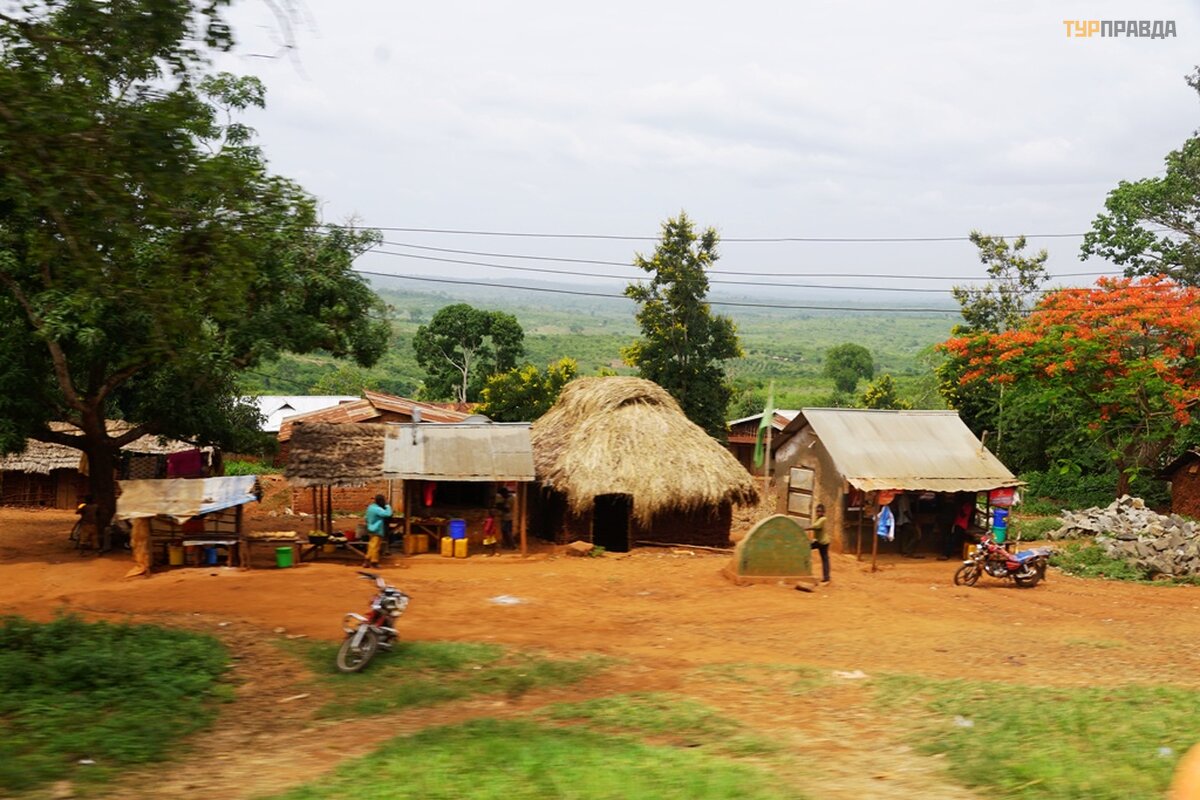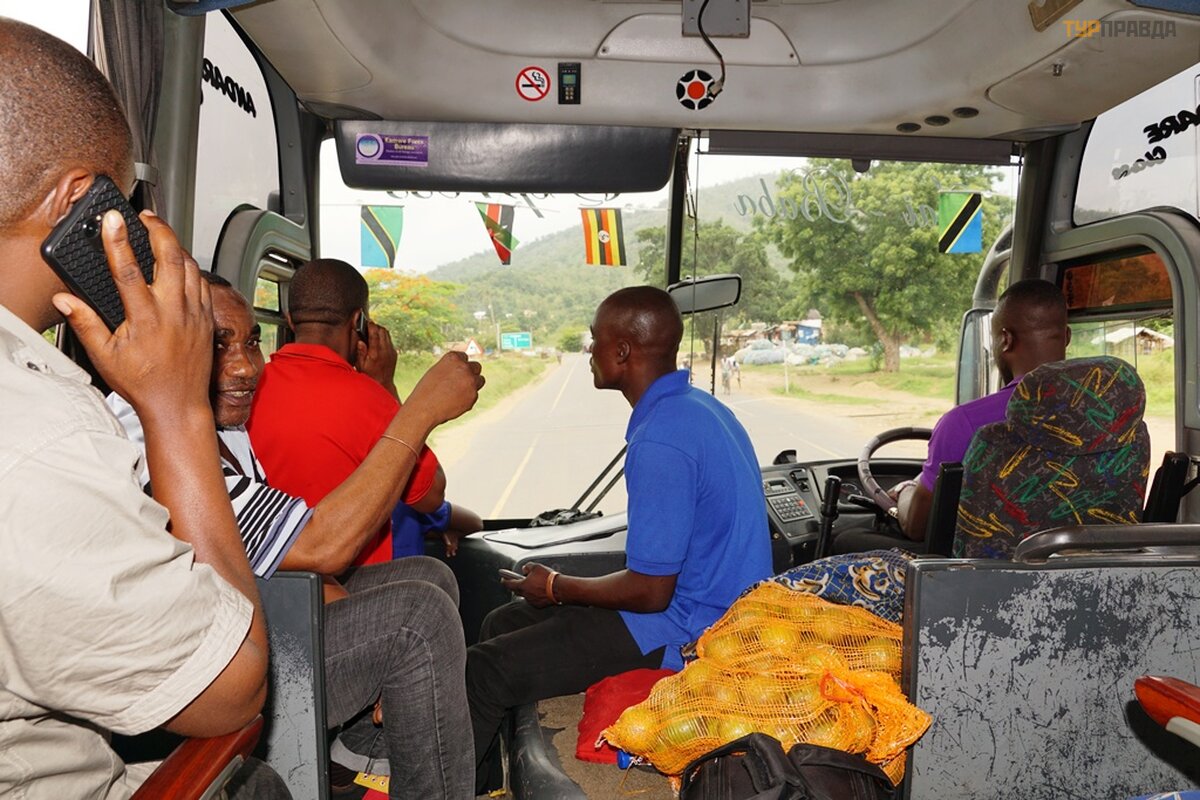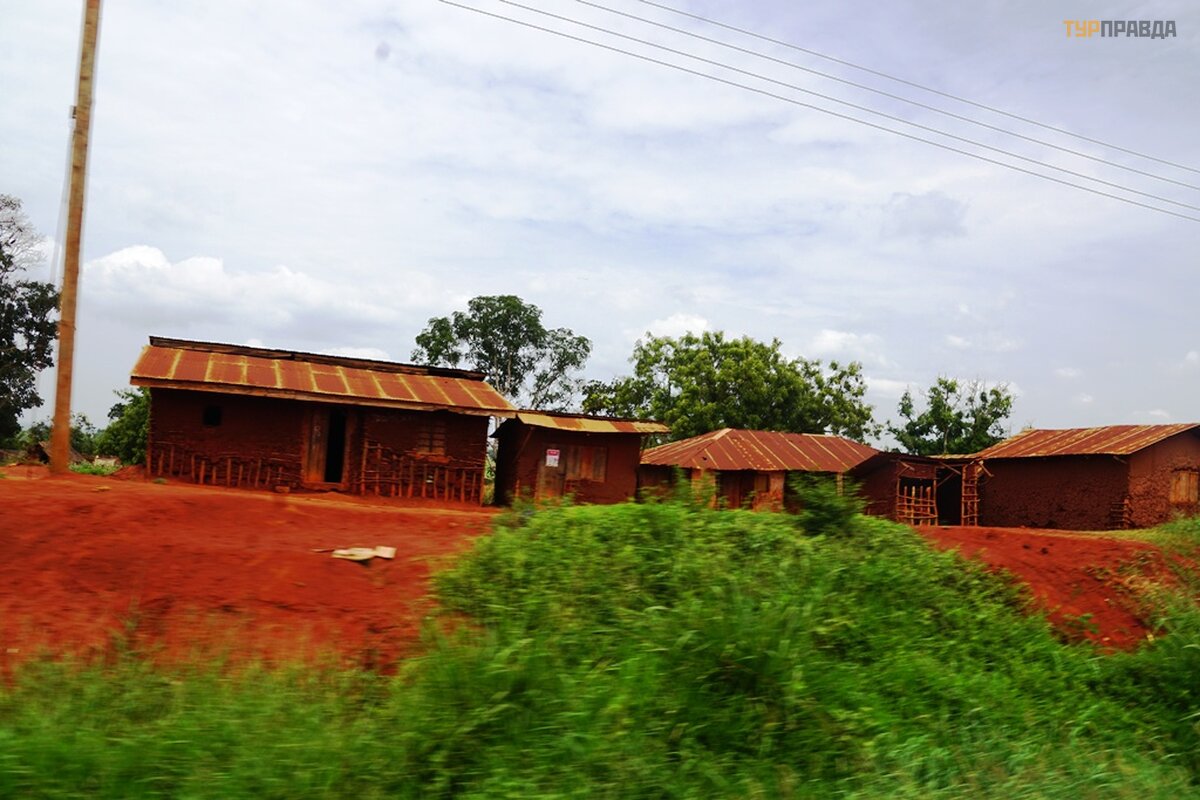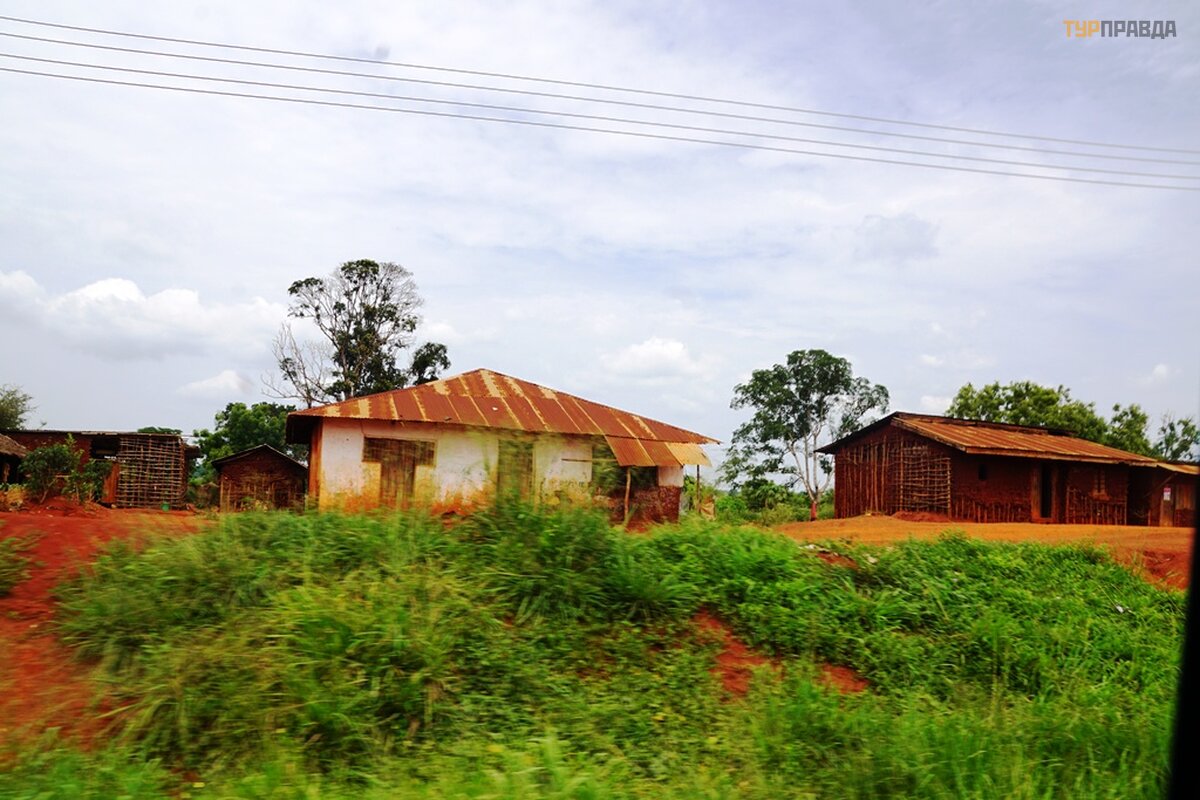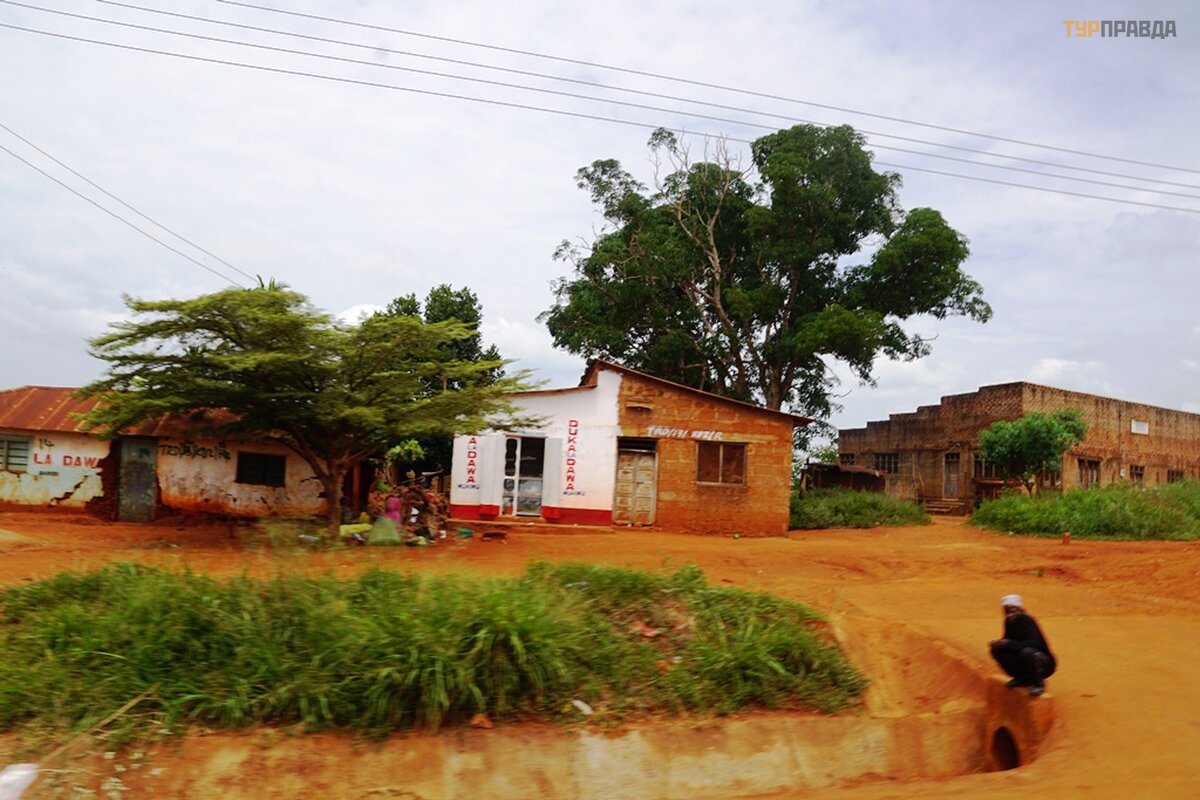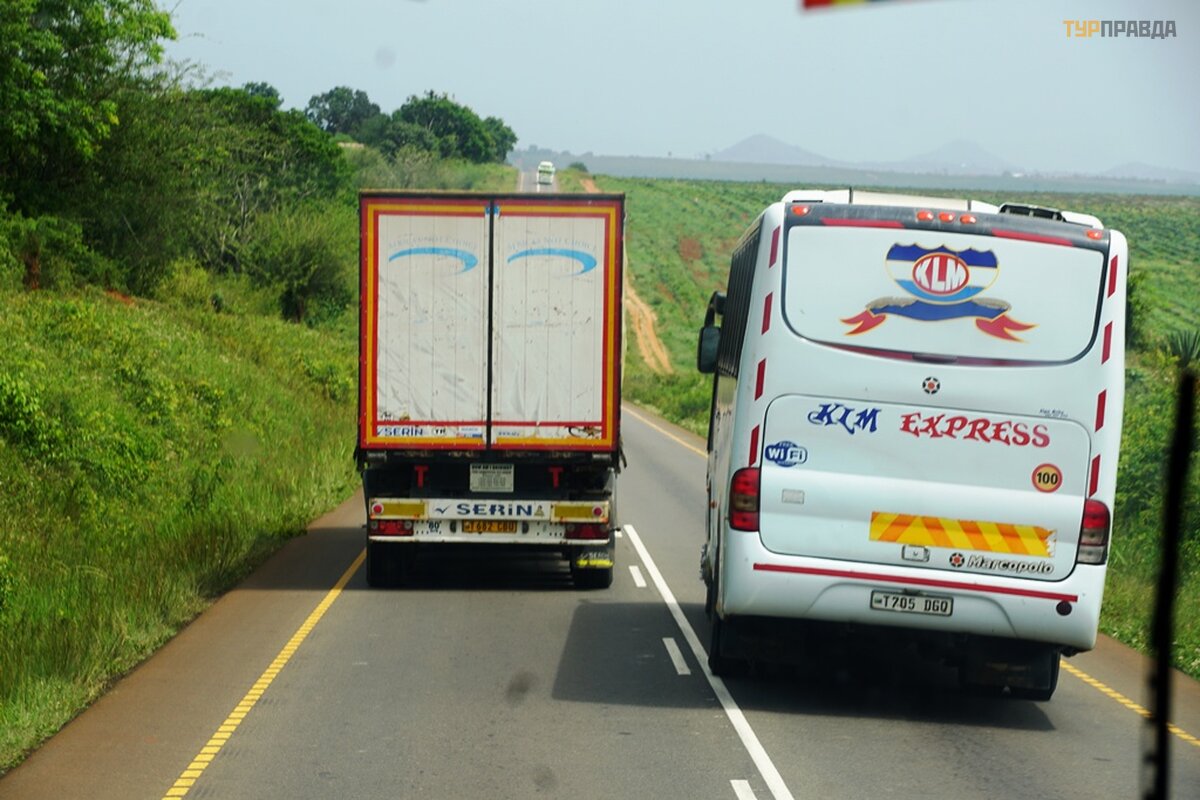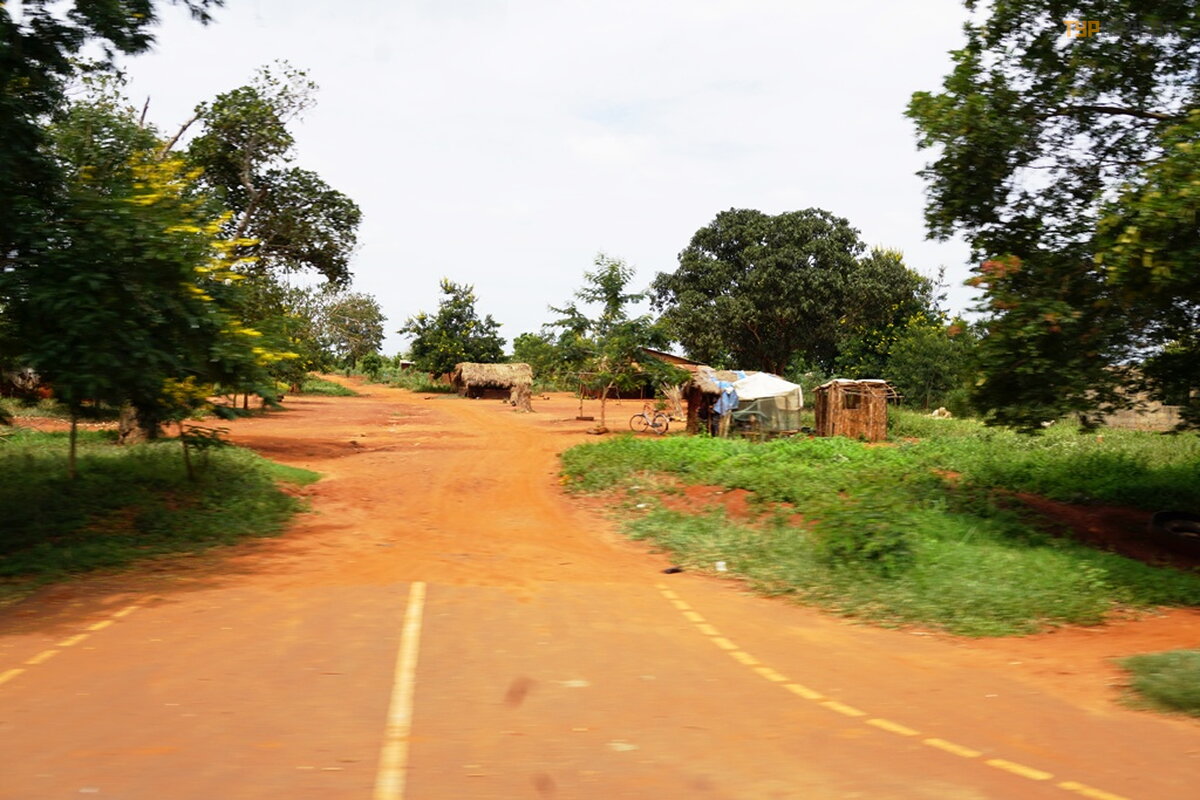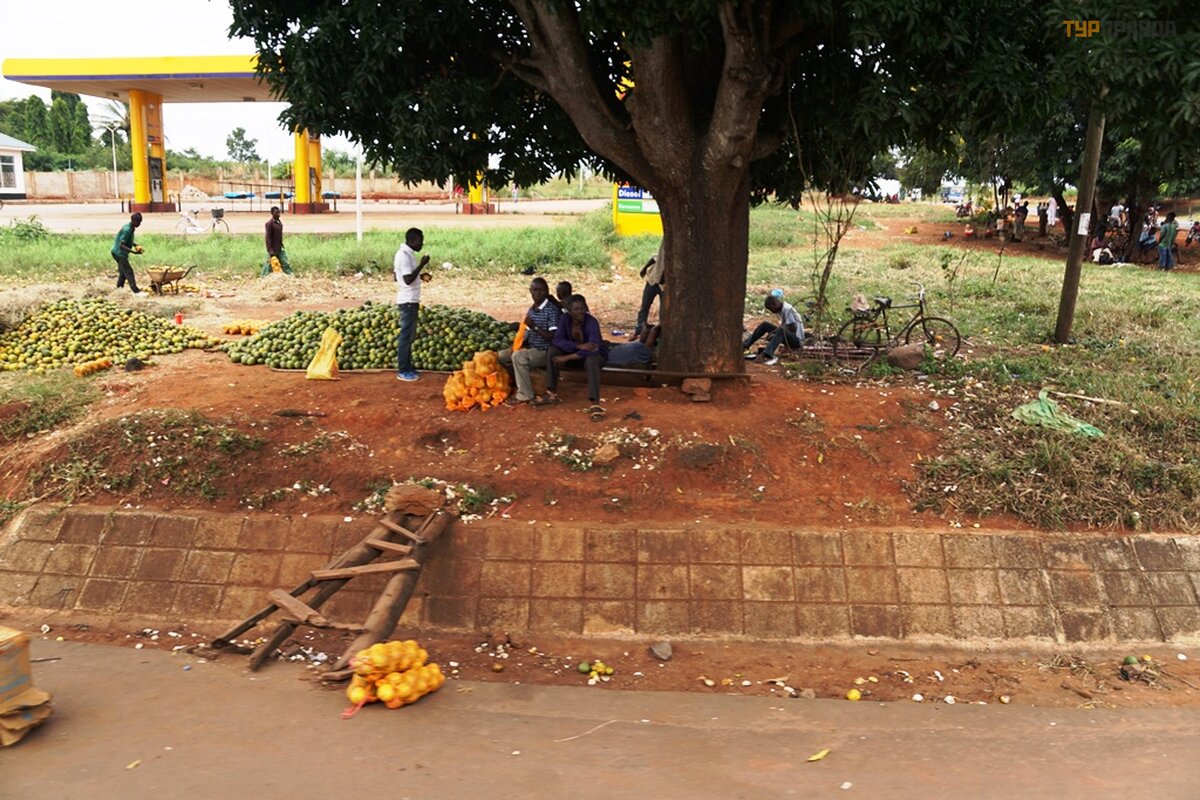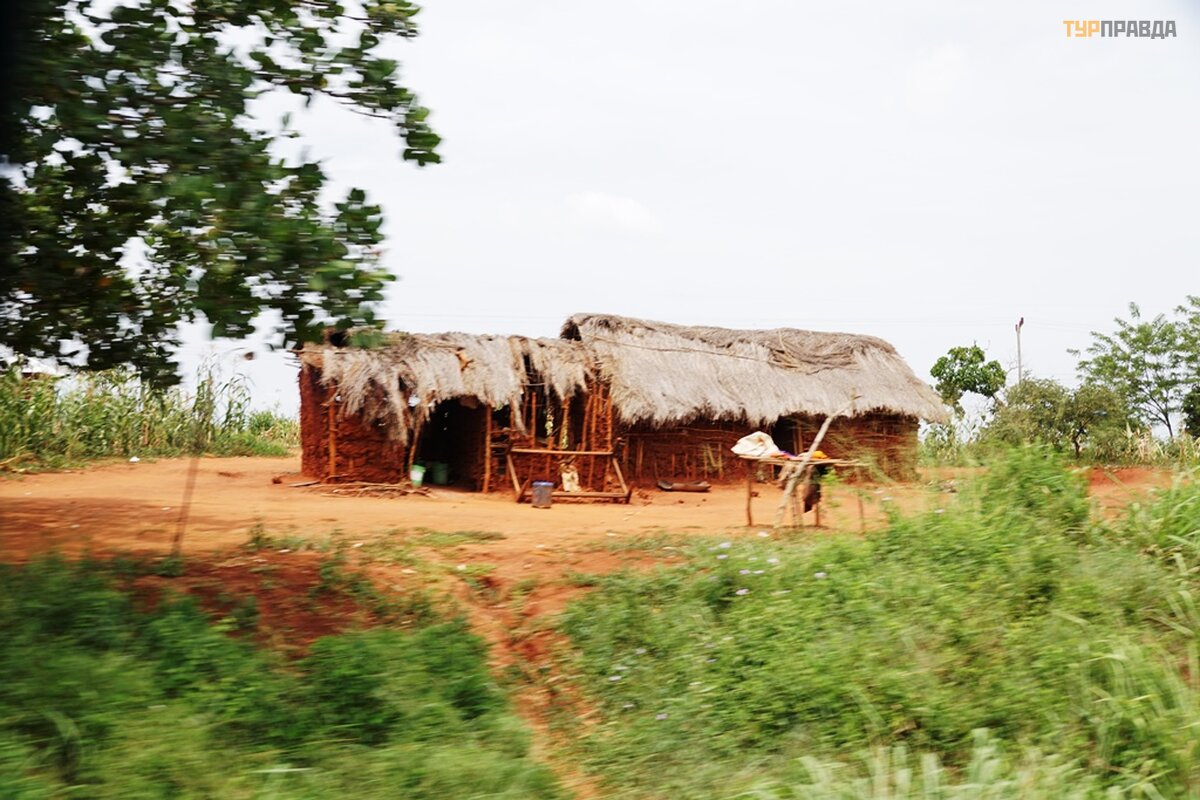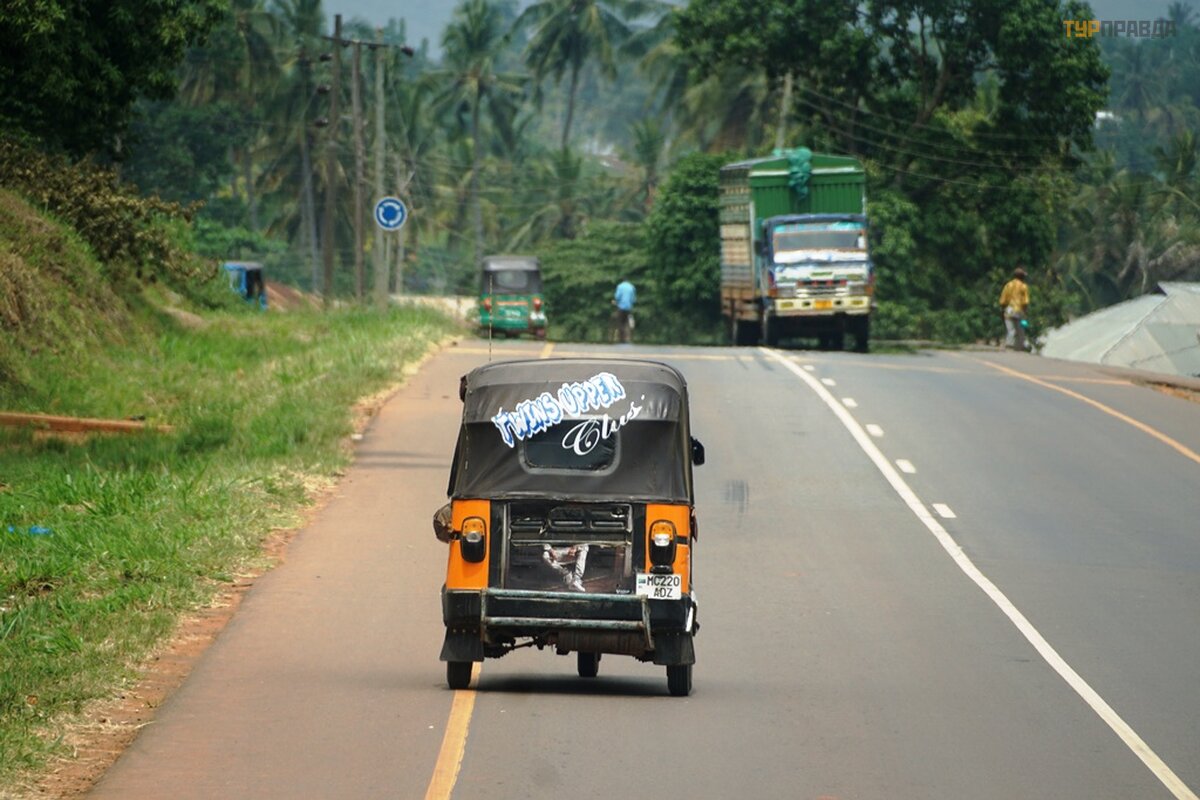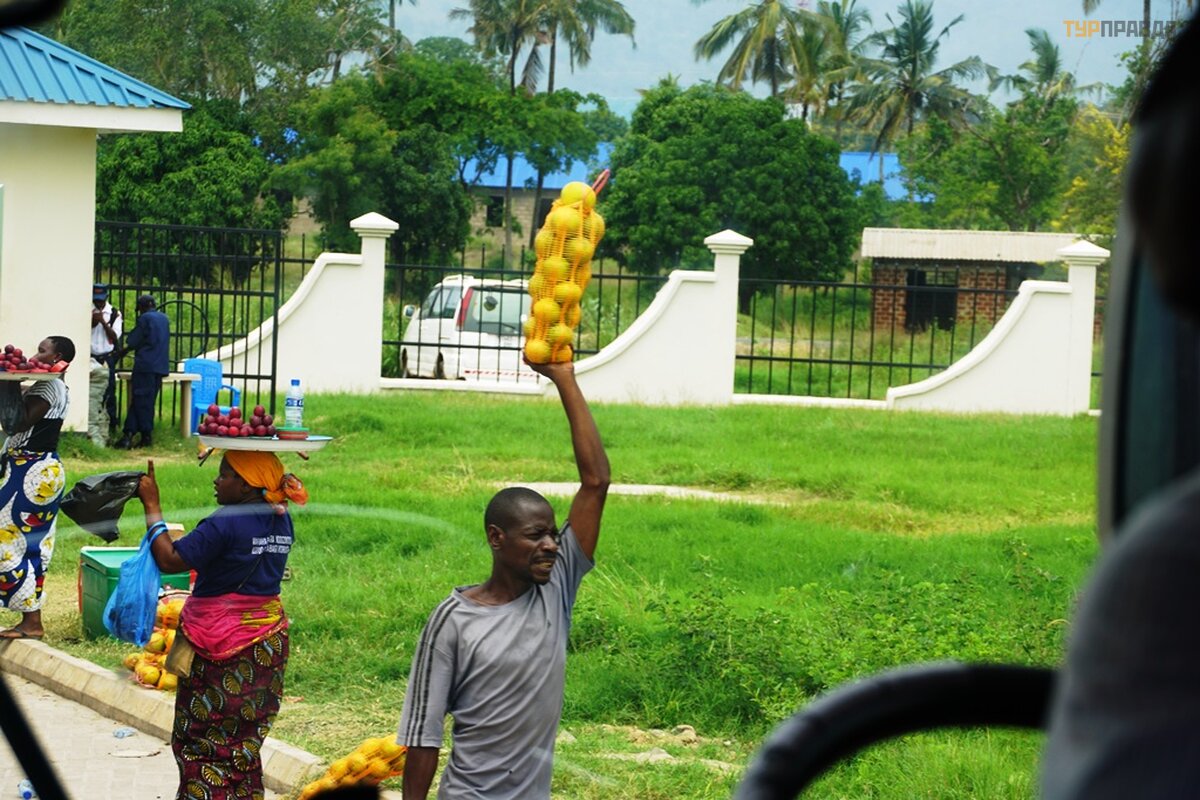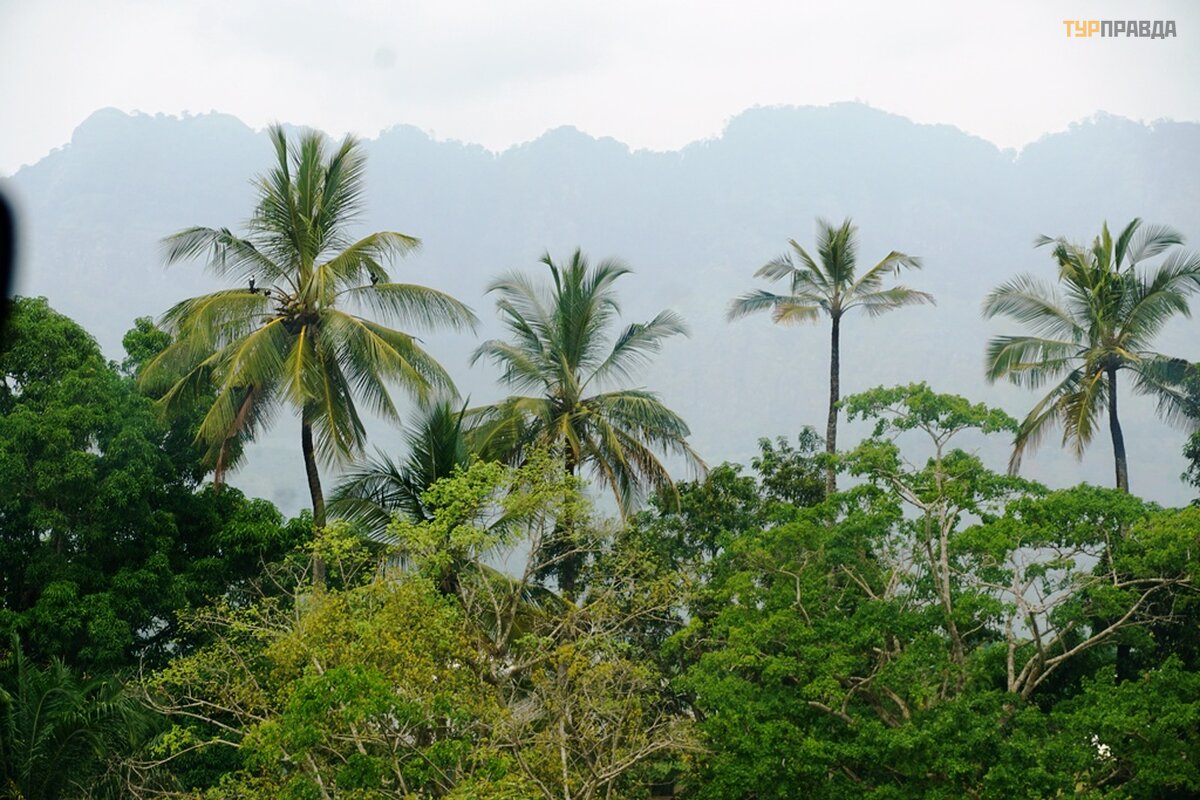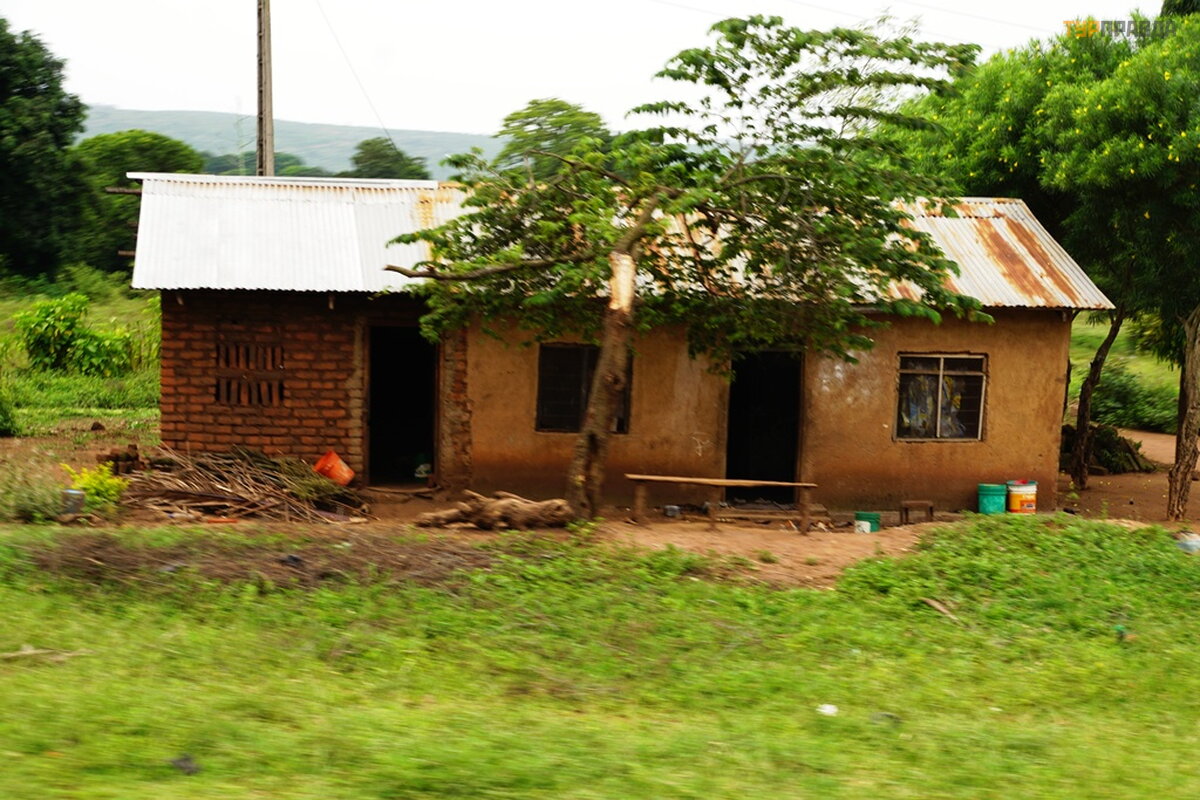Long road Dar es Salaam to Nairobi, Kenya. Journey to Africa 2018
 A boy with a bus driver.
A boy with a bus driver.
Nevertheless, the time has come to leave Tanzania for Kenya, about which I also read a lot of interesting things. Almost everyone praises this country. I'll come and see.
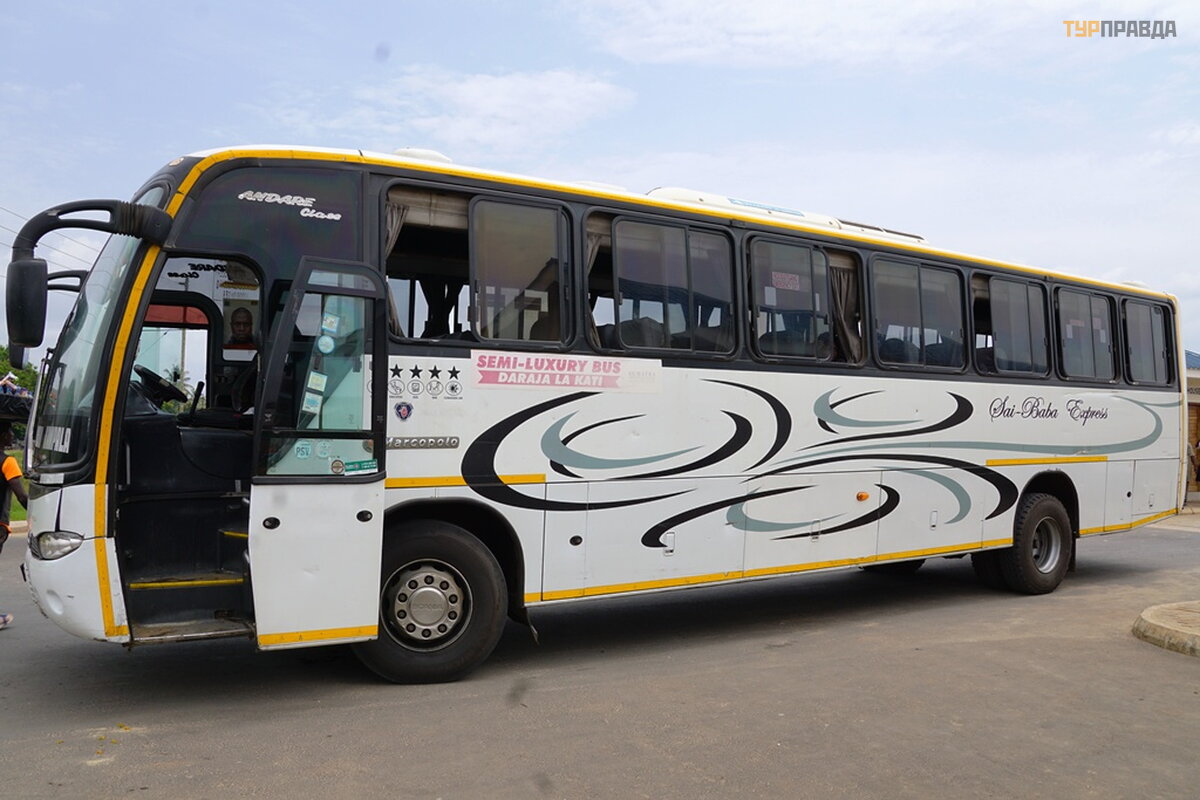 Our coffin on wheels.
Our coffin on wheels.
Before leaving for Africa, I contacted a Russian guide who lives in Kenya with his wife and children. He offered me tours of the reserves of Kenya and Tanzania with a payment of 1200-3200 dollars for two or three days. I asked him a series of questions about the trip to Africa. He answered me a couple of times, and when he realized that I didn’t really want to buy a tour from him, he stopped answering me. Lost interest. Now I realized that I did the right thing, not joining the group of other tourists, where he was the guide. I will also express my opinion about the safari in the reserves of Africa.
 Our bus.
Our bus.
Three days before leaving Tanzania, I bought a bus ticket from Dar es Salaam, Tanzania-Nairobi, Kenya, through a local errand at the reception of the hotel where I was staying. I could not find information about the bus on this route. I read dozens of sites and authors. Everything in general and nothing specific. I did not want to fly by plane, as the bus followed the route through the reserves of Tanzania and Kenya, through the city of Arusha, from where it was not far from the famous Mount Kilimanjaro. The hotel employee helped me buy a bus ticket. I paid the intermediary 5.000 TZS (about $2.2) and 70.000 TZS ($31) for a Dar es Salaam (Tanzania)-Nairobi (Kenya) ticket. Four hours later, the guy brought me a bus ticket, a small piece of paper with numbers written on it. Somehow I figured it out. True, I was afraid of a fake, and decided to check it out. Went to the bus departure point in the Ubungo area on the outskirts of Dara. Barely waited for the city bus.
The ticket cost just over 50 US cents. When the bus arrived, it was overbooked. In general, what I noticed is that buses in any country in Africa are always crowded. On the bus, you can not hold on, as the density of standing passengers would not allow you to fall. We drove for about an hour. It was an extreme ride. We, Europeans, spoiled by public transport, do not understand this. When I got off the bus, I was immediately surrounded by heavily tanned guys who live around the clock at this bus station. Their appearance was intimidating. It seemed to me that they were ready to pounce on me because of hopelessness and lack of money. It was useless to answer them and keep silent, since they did not understand anything, except for the words give money. The so-called bus station area was terrible. Ditches, pits, garbage streams, unbearable dirt, smells of food, and hundreds of locals besides me.
Whites usually don't come here, except perhaps in small groups. At that hour I was the only white among all the swarthy ones. I was walking, and around me was a triple ring offering something to men of different ages. The heat is above forty degrees and the dust. It was difficult to breathe, and even those annoying flies. With some difficulty I found a small chicken coop where a brightly made-up madam was sitting. I showed her my ticket for the SAI-BABA EXPRESS bus, the same inscription on her hut, where beautiful buses flaunt and sparkle. She took my piece of ticket with contempt, turned it over, then shrugged her shoulders and began to call someone. About ten minutes later, four people who wanted to help me crowded into the chicken coop, and everyone began to twirl and examine my ticket. Then one of them took me to another booth, where they recognized my ticket, and told me to be at the parking lot at 05:30 in the morning. I was glad that I would finally leave this city, where the bugs have been biting me for the third day.
The last time I was bitten by bedbugs was in Latin America. Why am I describing all this in this form, but because in reality everything is much worse. Booking. com, fails me more than once with the choice of hotels. I choose a decent one, but it turns out that it is worse than European chicken coops, although I am already used to such a situation in Africa and underdeveloped countries.
After confirming that my ticket was valid, I immediately thought that taxi drivers would charge more money for such an early hour than a bus ticket to Nairobi costs. I saw three hotels nearby. I went to where in one of them I paid for a room for a day. The next day I moved to this hotel, which turned out to be very good, as was my room. In the evening I went out to eat at a terrible eatery. I ordered chicken with fries and salad. When they brought it, I was horrified by the charred little pieces of chicken and potatoes.
There was nothing to do, and I quickly swallowed it all. In Tanzania, chickens are like our chickens.
At 05:00 I went to the parking lot of the bus station. Already when approaching it, I heard a continuous rumble, the screams of passengers picking up buses in the right direction, the roar of engines and bus signals. When I approached the broken opening of the entrance to the bus parking, I saw hundreds of buses, and thousands of people scurrying about with their trunks. It was not a sight for ordinary people. Such a nightmare could only be a dream. Began to look for a place for my bus. With the help of special screamers, I found my bus, following the route Dar-Arusha-Nairobi-Kampala (Uganda). The view of the bus from the outside was not for daily travel on the roads of Africa. My seat was number 10. I barely squeezed between the seats. I was alarmed by the fact that the bus was ordinary. Inside very dirty and shabby.
Cut seats, upholstery worn to holes with dirty smudges. As I understand it, the best buses do not go here. Ahead I saw a more free seat, and sat on it, but they immediately shouted at me that it was impossible, these places are for the bus attendants. I counted seven such places. The fact is that agents who sold tickets to them put their passengers on this bus, and there were as many as five of them. The bus was terrible, I immediately forgot about the air conditioner, cut wires stuck out from the TV screens for watching movies. Everything that could be stolen from him was stolen long ago. Exactly at six in the morning, our bus set off, if I could say so. Almost simultaneously, dozens of buses rushed to the opening to exit the road. It had to be seen. A continuous traffic jam of buses striving to be the first to leave. I'm surprised we didn't bump into anyone.
About twenty buses drove onto the road at once, the drivers of which staged races with dangerous maneuvers. The road to Nairobi was narrow with one lane in each direction of traffic. Large cars barely moved, but did not slow down. Approximately every ten kilometers, local traffic cops hid in the shade. Each of our driver unfastened the dirtiest banknotes prepared in advance. Russian traffic cops, this is a fairy tale in relation to their colleagues from Africa. The fact is that the speed limit is 80-50 kilometers, and drivers drive all 100-120 kilometers per hour. It turns out that there are radars in Tanzania. After about three hundred kilometers, we were stopped at a stationary point, where our driver was charged with a large fine. He entered the bus indignant, saying that he gave all the money he had earned. Then we drove, not exceeding the speed limit, and I clicked the shutter of my camera through the open window of the bus.
For more than a thousand kilometers across Tanzania, the picture along the roadside was one, it was the clay shacks of local residents, the poverty and squalor of their dwellings. On the way, we stopped briefly several times, picking up passengers between settlements. This is called the international express bus. We also stopped at places where they sold pineapples and mangoes. There are whole thickets of them here and they are very cheap. Passengers try to buy them for their homes. When I tried these nondescript-looking mangoes, I was stunned. I have never eaten such sweet and juicy ones, except in Bahrain. We drove into the city of Arusha in the rain. I wanted to stay here for a trip through the park to the famous Mount Kilimanjaro, but they explained to me that it had been raining for several days, and the mountain itself was covered with clouds. She is not visible at all. I had to move on to Kenya. We left Dara at 06:00 and arrived at the border with Kenya at 21:13.
In the same building, the registration windows of Tanzania and Kenya are nearby, which is very convenient. The whole procedure for our entire bus took an hour and a half. Good thing we were alone. At the Kenya checkpoint, I was forced to throw out all the plastic bags containing mangoes, pineapple, and food with water. When we began to move through the territory of Kenya, along the side of the road, as in Tanzania, the same packages that were taken from me at the border were lying around.
At about 00:18 we arrived in Nairobi. The city is large, but as dirty and shabby as Dar es Salaam. The mood has plummeted. I thought at least Nairobi was a decent city. Run to the hotel, shower and sleep.
 They grow up to a hundred years old.
They grow up to a hundred years old.
 Dangerous overtaking to meet us.
Dangerous overtaking to meet us.
 I never saw a drought in Africa.
I never saw a drought in Africa.
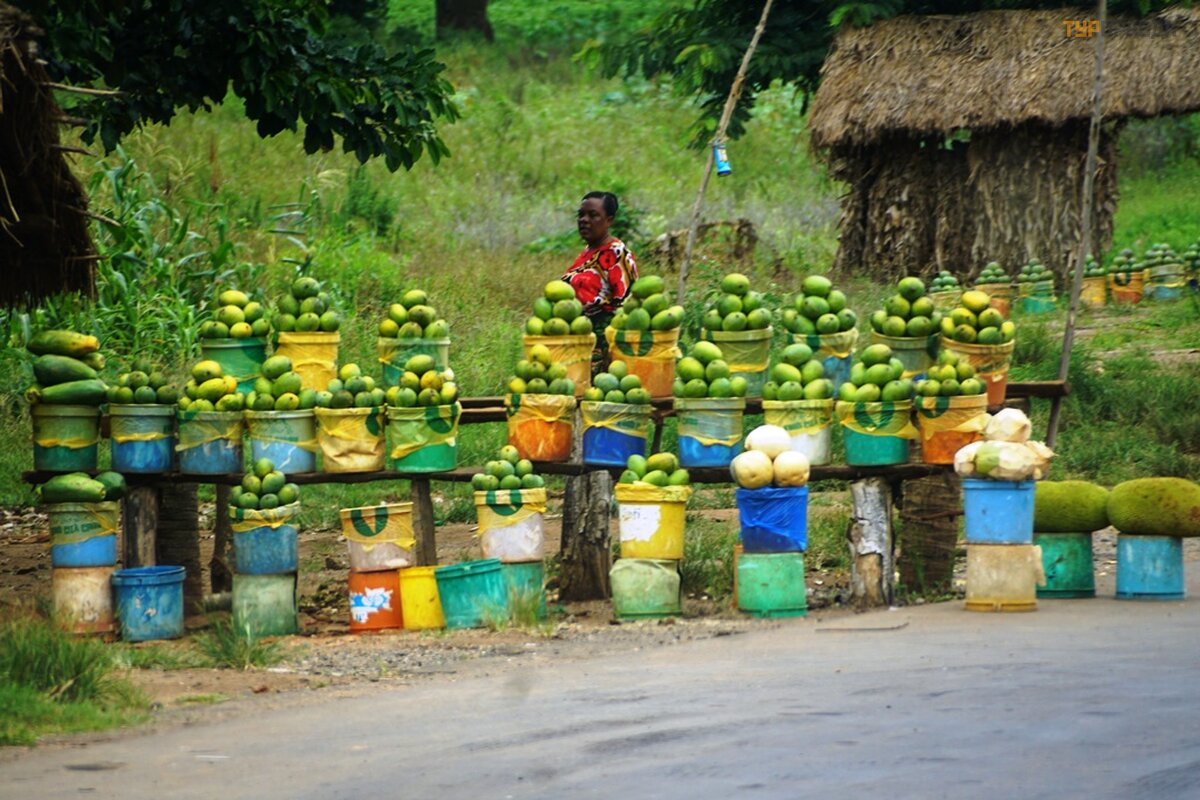 I still remember the taste of mango.
I still remember the taste of mango.
 That's why they want to live in Europe so much.
That's why they want to live in Europe so much.
 This is how almost all of Africa lives.
This is how almost all of Africa lives.
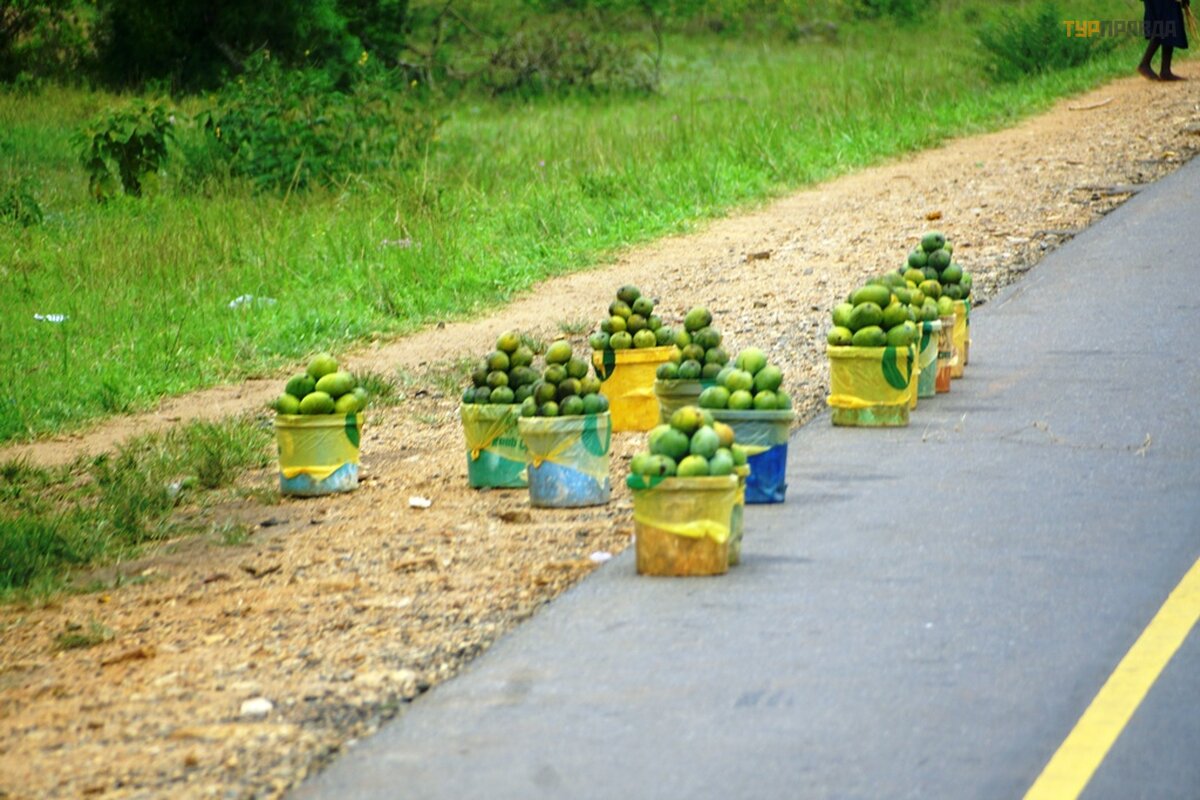 The tastiest and sweetest mangoes in Tanzania.
The tastiest and sweetest mangoes in Tanzania.
 It's a long way for them to go to school.
It's a long way for them to go to school.
 Tanzania. Schoolchildren go home, and the girl is barefoot. I feel sorry for the children of Africa, but their presidents live for their own pleasure, not thinking about the people.
Tanzania. Schoolchildren go home, and the girl is barefoot. I feel sorry for the children of Africa, but their presidents live for their own pleasure, not thinking about the people.
